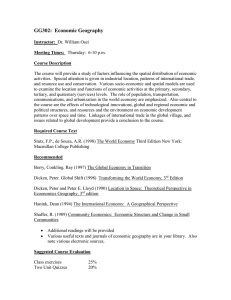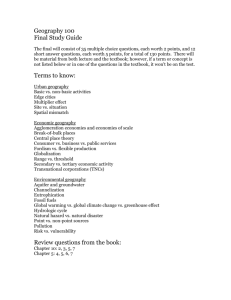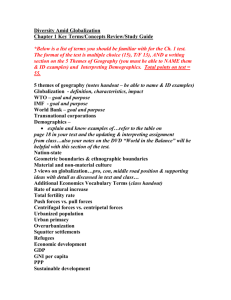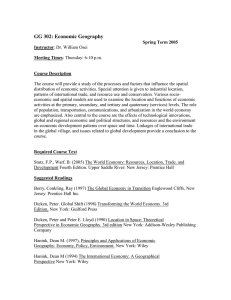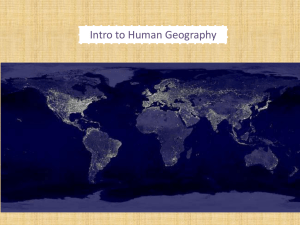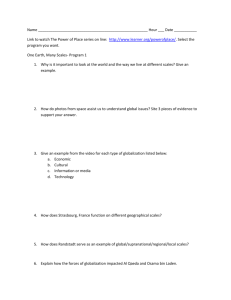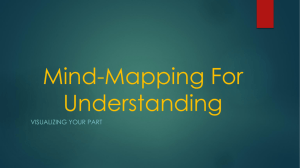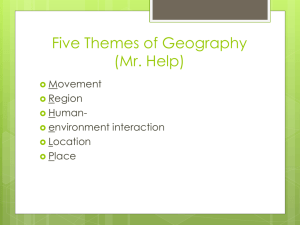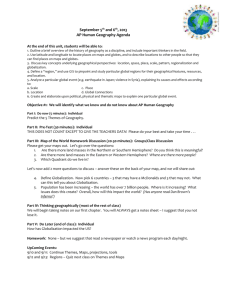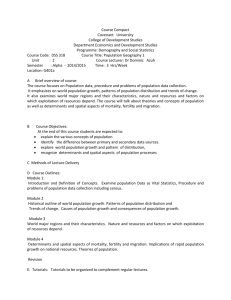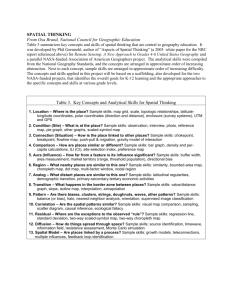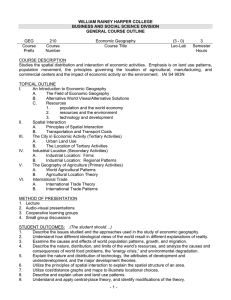Lecture_Notes_files/Geography Matters
advertisement
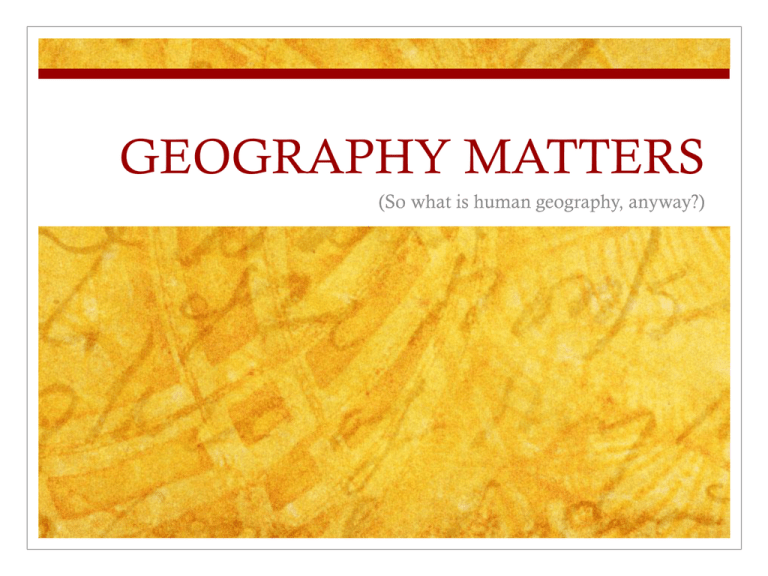
GEOGRAPHY MATTERS (So what is human geography, anyway?) A way of looking at the world Human Geography is a WAY of studying the world, not a set of topics Geography looks at how places in the world are created, inhabited, and connected Geography focuses on interdependence Geography is the study of the spatial organization of human behavior, and people’s interactions with their environments. Place is CONSTRUCTED People transform the natural environment to make places that are physically distinct and enable diverse ways of living. Places may have different social meanings to different groups Place is CONSTRAINING The spaces and places we live limit what we can do. Limits come from the natural environment, and the built environment. Scale matters Places are interdependent at different scales. New York migration: Haiti and NYC are connected (even though they are at different scales) by large scale migration Core, periphery, and semiperiphery defined by density of connection Globalization Increasing interconnectedness of different parts of the world. Common processes of economic, environmental, political and technological change Uneven connections: who is the US’s biggest trading partner? Three Views of Globalization Hyperglobalist Skeptical Transformationalist Hyperglobalist View *Neoliberalism *Limited role for the state, barriers to movement of money, goods and information should be low. *Corporations more important than states “Open markets and free trade will make everybody more prosperous.” “A rising tide lifts all boats” Skeptical View Globalization is nothing new. The nation-state is not going away. The world economy is just regionalizing as it did before, not truly globalizing Transformationalist View Globalization is a huge historical change---it’s new It profoundly transforms societies. Change is unpredictable Increased social stratification Key Issues of Globalization Environmental issues Climate change Desertification Pollution Health Global pandemics HIV Security Terrorism Rogue Nukes Spatial Analysis Location: where is it and why is it there? Absolute space: latitude and longitude Relative space: technology shapes distance Tbilisi and Gori Cognitive space: where things seem to be. (the “hell yes” line) Spatial Analysis Distance: Friction of distance Distance/decay function Spatial Analysis Space Topological space: connectivity Accessibility Spatial interaction: movement and flow Complementarity and Transferability Time/Space Compression Spatial Diffusion Questions?
